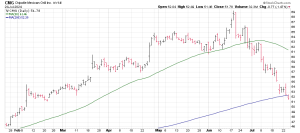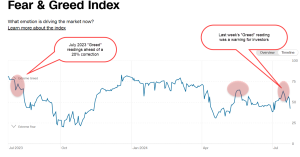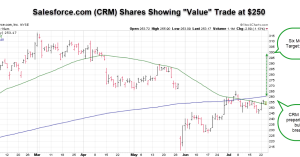

 
Interview with: Idowu Adebayo Thompson, Group executive & Global Head, Private Banking & Wealth Management, FirstBank
World Finance gets the low-down on the future of the private wealth industry in Nigeria, as FirstBank wades deep into hyper-powered tech, artificial intelligence, and highly dispersed client ambitions. What are the risks and responsibilities – and how are these safeguarded for this demanding, switched-on client base?
The high-net-worth client business catering to Africa’s growing affluent population is super-competitive. What challenges does this pose for FirstBank, and how are they met head-on?
Africa is home to 135,200 high-net-worth individuals (with $1m or more in investable assets), 312 centi-millionaires ($100m in investable assets or more), and 21 billionaires. Summed up, the bank is faced with the challenges of anticipating and responding to the changing investment and wealth management needs of well-educated and well-travelled individuals who routinely benchmark the bank’s products and services against those of offshore service providers.
So how is this demand met?
We combine a mix of highly personalised service delivery and technology to enhance the client’s experiences with us. We seek to attract the affluent next gen and new money – both to sustain business growth and leadership in the private wealth industry. We leverage technology as an enabler but not to replace humans wholly in the client experience.
What do clients want, in your view?
Speed and competence in service delivery. Our approach has been to focus on the client’s journey, and to seek the most creative ways to make their customer experiences both more personable and rewarding at the right cost. This is achieved by providing highly competent support and leveraging the right technology and tools.
What of political stability, crucial for client risk confidence?
Political instability and governance issues can undermine confidence in the banking system. Affluent individuals can always invest in other jurisdictions to safeguard their wealth.
So how does FirstBank negotiate these tensions?
Political instability anywhere – either remotely or directly – shapes the responses of the players in any market. Private wealth organisations in Africa are no exceptions. These tensions guide how we organise ourselves and also respond to changes in the market.

Is it about a different attitude?
Tensions pose a serious challenge to developing sustainable business models. At FirstBank Private Banking and Wealth Management, we see opportunities where others may focus on challenges. We do this by anticipating high impact changes that could affect personal wealth, and by providing our clients with seamless investment and wealth management solutions to protect and grow their wealth. FirstBank also maintains a presence in the UK providing options for those with offshore banking, mortgage and asset-based lending, and investment needs. A well-trained private banking team sits in this jurisdiction and caters to the needs of these clients.
Where is the Nigerian economy seeing most entrepreneurial growth and potential – and how does FirstBank frame itself as a trusted player in this space?
In the private banking and wealth management business specifically, there are new growth areas in tech and innovation. More private equity firms are showing greater interest in our markets now. Inflows to start-up and tech firms were estimated at $4.5bn in 2023 though this was a decline on the 2022 figures in response to some of the headwinds experienced in some African markets. This sector, however, continues to remain very relevant.
Due to Nigeria’s oil exports, fluctuating oil prices and its impact on the Nigerian Naira, currency volatility is part of life. How does FirstBank manage guidance to clients?
The private banking and wealth management business seeks new growth areas and in turn, more contemporary sources of wealth outside the traditional resource driven areas. We help our clients articulate long-term financial goals and offer a range of investment, wealth management and lifestyle interventions to support these goals. We encourage our clients to adopt risk-mitigating strategies in building investment portfolios to ensure the sustainability of their wealth, while leveraging a range of solutions like mutual funds, fixed income (investment) as well as estate planning (fiduciary) working conjointly with proprietary product partners in FirstBank and our holding companies.
What is the FirstBank view of the Nigerian economy for the next three to five years?
In the recent past we have seen several policy changes aimed at placing the economy on track. With a 600 basis points upward adjustment in the monetary policy rate and in turn higher lending rates, there is guided depreciation of the local currency with a focus on promoting price discovery and stability in the value of the currency. These changes have come with challenges and especially for clients who are constrained to deal with rising inflation (33.69 percent) as of April 2024. It is expected the various government interventions would impact the economy positively with stronger outcomes and a high degree of stability in the next three to five years.
African banks need to offer investment options that match changing values without compromising on profitability. How is this managed?
By being more agile and less reactive. Recognising new growth opportunities while simultaneously protecting the core of their businesses. A good example is the adoption of a well-defined digital wealth management application to cater to a wider and potentially profitable upper affluent base, and to attract the millennial and Gen X future wealth cohorts.
Your competitors aren’t just banks now but fintech and IT companies. With so much blurring of lines, how do you plot a long-term strategy?
Africa is home to seven unicorns – companies with a valuation of more than $1bn. Our long-term strategy is to leverage the distinct advantage of our own franchise – a deep knowledge of the market backed by our long and enviable history, stretching back more than 130 years. We offer solid competence to our private banking and wealth management, institutional and commercial clients. The bank continues to invest heavily in technology as we target more opportunities in adjacent areas for growth.
African countries often compete to attract foreign direct investment (FDI). A favourable tax regime can be an incentive for foreign investors, especially for tech entrepreneurs. Does FirstBank want to see change for clients here?
The government has a policy framework around this with several designated free trade zones listed across the country offering varying incentives to companies ranging from tax breaks to preferential access to regulatory interventions and more.
We have seen several policy changes aimed at placing the economy on track
Tech privacy makes headlines daily. What security and confidentiality safeguards for client peace of mind are in place?
The private wealth business model recognises the high need for confidentiality as distinct from secrecy which may exist outside of regulatory ambits. Chinese walls are built around sensitive data (static and non-static) leveraging technology. We invest in the training of personnel for an in-depth appreciation of the needs and requirements for confidentiality for a highly personalised private banking and wealth management business.
What about corporate governance structure and practices, in relation to board composition?
The bank has an internal governance framework built around best practices and regulatory standards. There is a significant increase at board level understanding of the HNWI and ultra-HNWI business. This is evident in the stronger levels of advocacy and a heightened interest of its role in our overall enterprise strategy.
Are African regulators moving fast enough to support the future digital landscape changes? Is it always a game of catch-up?
Yes. Most of the regulators in the key markets in Africa have a clear stance and view of the role of digitisation. However, there is always room for improvement.
What are the tensions between strong corporate governance, profitability and long-term client trust?
The bank would never sacrifice the trust of its long-term clients or indeed its corporate integrity in the pursuit of profit. We are absolutely woven into the fabric of society in the markets we operate.
The balance of taxes and incentives are particularly important in the African banking landscape. Has the government got the mix right?
These are choices dictated by practicalities and the needs of the sovereign. Nigeria has and would continue to pursue an optimal mix of attracting offshore investors while also ensuring the viability of its local industries.
What can the Western financial services industry learn from African players? Where are African players clearly ahead, do you feel?
Resilience. Banking is a business of managing risks and less about avoiding risks. The ability to deliver despite the intervening uncertainties.
Which financial services companies do you admire most, regardless of jurisdiction?
Other than FirstBank, personally it would be the DBS (Development Bank of Singapore). A practical example of a financial institution that surmounted deep-seated challenges to transition from a conservatively traditional bank to a nimble and opportunity-seeking business reputed to be Asia’s safest bank.




